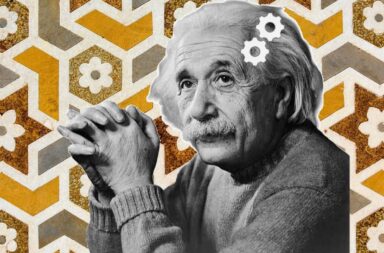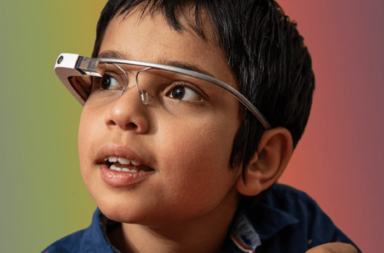In a 2015 survey, 80% of autistic people reported that they had been taken advantage of by someone they considered to be a friend. This was a colossal leap from the already significant 48% which had been previously recorded and it illustrated a problematic truth: Autistic people make easy targets.
Now of course, this isn’t something we as a community were entirely unaware of (as anytime anyone finds themselves in the minority, you can be pretty sure they are also in someone’s crosshairs). However, where the typical Biff Tannen; grab you by the collar and steal your lunch money type, is damaging in its own way, it was found that this kind of exploitation was leaving autistic people with a lot more than empty pockets and injuries that would fade.
Nicknamed ‘mate crime’ (due to how the perpetrator will manipulate the victim by pretending to be someone they can trust), this specific type of bullying is much more serious than its name makes it sound, which is why, today, I plan to look at what causes autistic people to become such magnets for manipulation, as well as how we can help to prevent its prevalence within our community.

Why Autistic People are Victims of Exploitation
I want to start by saying that, when it comes to crimes of any nature, it does no-one any good to blame the victim. For this reason, it should be stated up top that autistic people are in no way at fault for being exploited. Instead, it is the unfortunate reality that some people are just the worst and, whether they are victims of previous abuse out for revenge (or maybe just flawed as people), bad decision after bad decision has caused them to prey on the vulnerable, which often leads to our community.
But why the autistic community in particular? Well, the simple answer is that our mostly elusive nature means that we are often found apart from the herd and so are easier to pick off. However, where mate crime is concerned, the tragic truth is that most autistic people feel isolated and welcome the opportunity for friendship – unaware of the ulterior motive which are acquaintance may have.
This signposting makes us easy to pick out and latch on to and then, through isolating an autistic person from our support or by guilting us, someone carrying out autistic mate crime will exploit an autistic person to get what they truly want e.g.
- Taking the person’s property/money
- Grooming them for sexual acts
- Encouraging them to commit crimes from which the other person benefits
To get a bit more scientific on you, autistic people also have a deficit in the retinoic acid induced 1 gene (which increases trust) and a weaker understanding of long term consequences. So, when our ‘friend’ asks us to do something which might be considered amoral or may leave us at a disadvantage, we might throw understanding to the wind and, instead, place our belief in them over what we know.

What does Autistic Exploitation look like?
Given that from the earliest age I was a 6.2ft rugby player, I was never really considered to be vulnerable (in fact, due to my large heavy-handed nature, mixed with an inability to read the room, it’s more than likely that I would often be perceived as a threat). I have since learnt just how far from the truth this is as, where bullies can’t use muscles, they will often play games with the mind.
I have shared toys with people who never show their face again. I have put aside my university projects to help classmates who take the credit when it’s good (and blame me when it’s bad). I have also been encouraged to carry out ‘harmless pranks’ on others (which turn out to be anything but harmless) and yet, even after I realise what I am doing is wrong I, like many autistic people, struggle to shake off the person pulling the strings.
Perhaps this is because autistic people struggle with changes in the status quo, or maybe it’s because those who struggle with isolation don’t want to go back to how it was before. However, my take is that, due to how autistic people often struggle to understand seeing motive (known as Theory of Mind), we constantly doubt that someone could act maliciously (even though history and experience tells us they can).
With 8 out of 10 autistic victims of exploitation stating that they now turn down social opportunities from fear that it may happen again, the consequences of these experiences are clear (and that’s nothing to say of the more stomach-churning responses which have led to fractured mental states or actions far more fatal). So, what can be done to prevent this kind of abuse in the autism community?

Overcoming Autistic Exploitation:
Like wildfires, autistic manipulators don’t need long to leave behind a trail of destruction but, if acted on fast enough, they can be stamped out before they cause any long-term harm. Doing this will require a different tac depending on whether the manipulator is a friend, a work colleague or someone you are romantically involved with. However, what follows are a few words of advice which should help.
1. What’s Yours Is Yours
whether it be time, property or your body, a true friend will never demand anything that you don’t want to part with. That’s why teaching autistic people that (sometimes) it’s okay not to share, is crucial in our protection.
Putting a bit of space between a request is a great way to achieve this, which can be easily realised by responding to demands with statements like ‘I will need to think about it’ or ‘Let me ask such and such first’.
2. Avoid the Pressure
Manipulators like to work by putting someone under pressure and pushing them for an immediate response. This is usually because the manipulator themselves has run out of time which, sadly for them, isn’t your problem.
If this is the case and someone is trying to force their problem in your direction, once again, try and create some distance early (so you can witness them reveal their true colours from a safe distance).
3. Identify When It’s Happening
‘Gaslighting’ is a term used for when someone manipulates their victim into doubting their version of stories over time, and it is incredibly common in mate crime. Although difficult to detect, gaslighting becomes more problematic in the autism community, where many of its signs, such as increased anxiety and depression, are already frequent.
As such, threats of gaslighting highlight the need for autistic people to have strong support networks, so that someone will notice the change in behaviour and intervene. Alternatively, for autistic people who are more independent, try and be wary of your gut feelings; if you feel at unease around an individual and something in your mind doesn’t quite feel right, then there’s probably a good reason why (and it’s probably because it’s time to cut them out of your life).
4. Take Action
One of the bizarre things about any kind of wrong-doer is that, in some cases, they are oblivious to the fact that what they are doing is wrong. If you are a person in harm’s way or you can act in the interest of a potential victim, simply sitting down with a manipulator and explaining the impact of their actions can make a difference and help to put a relationship back on the right track…
…then again, some people are just jerks and no amount of Good Will Hunting is going to resolve this. In this case, it might be best to leave things to the experts: a few of whom can be contacted through the list of names and numbers below:
U.K.
- Bullying UK:
0808 800 2222 - NSPCC (for adults to report):
0808 800 5000 - NSPCC (for kids to report):
0800 1111 - UK Emergency Number: (because Mate Crime is a Crime):
111
U.S.A.
- StompOutBullying Helpline:
Live Chat link here - National Child Abuse Hotline:
1-800-4-A-CHILD (1-800-422-4453) - US Emergency Number: (because Mate Crime is a Crime)
311

Carry on the Conversation
Can you add to my list of helplines? If yes, then please leave any and all reccomendations in the comments below. And, if you would like to hear more about the first hand implications of autistic hate crime, then follow this link to the article: The Harsh Reality of Autism Bullying and Autistic Hate Crime
As always, I can also be found on Twitter @AutismRevised and via my email: AutisticandUnapologetic@gmail.com.
If you like what you have seen on the site today, then show your support by liking the Autistic & Unapologetic Facebook page. Also, don’t forget to sign up to the Autistic & Unapologetic newsletter (found on the sidebar on laptops and underneath if you are reading this via mobile) where I share weekly updates as well as a fascinating fact I have found throughout the week.
Thank you for reading and I will see you next week for more thoughts from across the spectrum.


